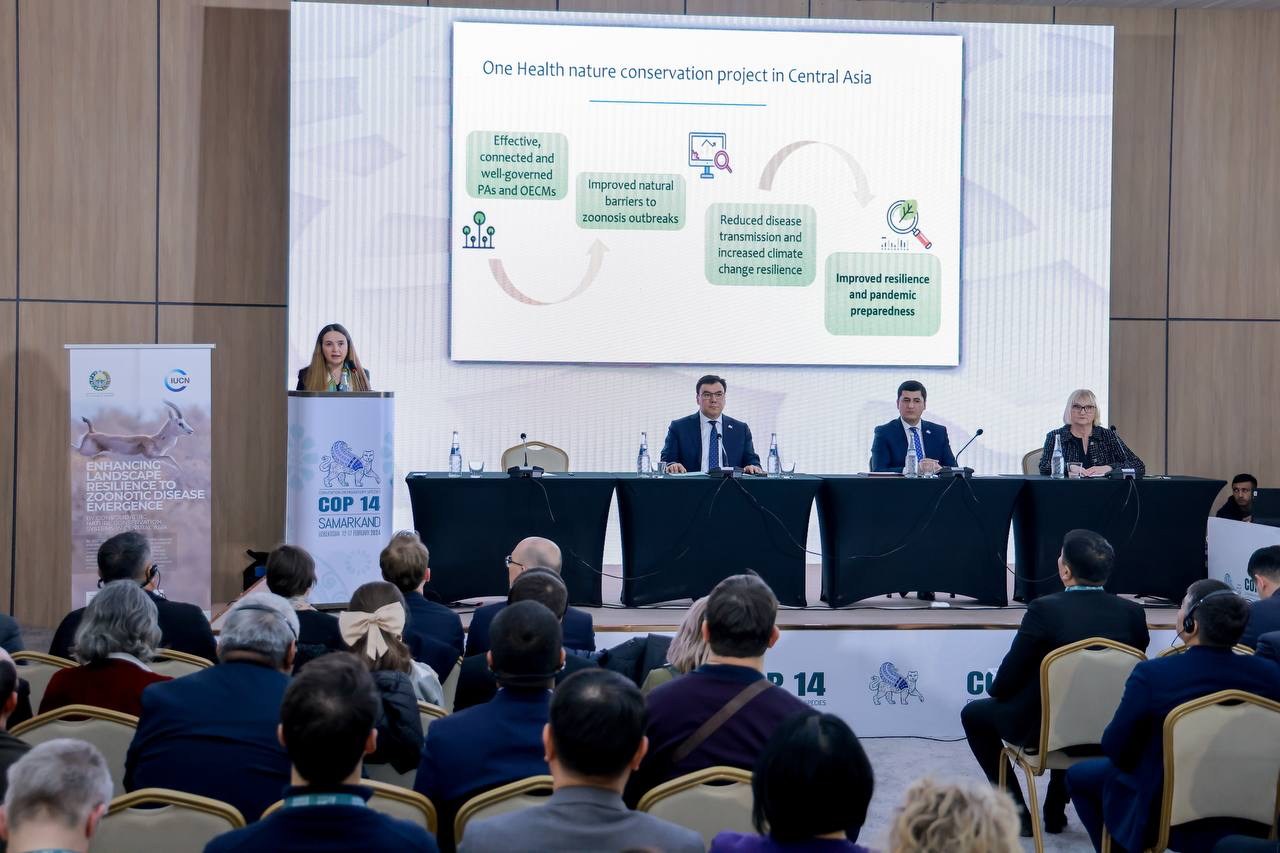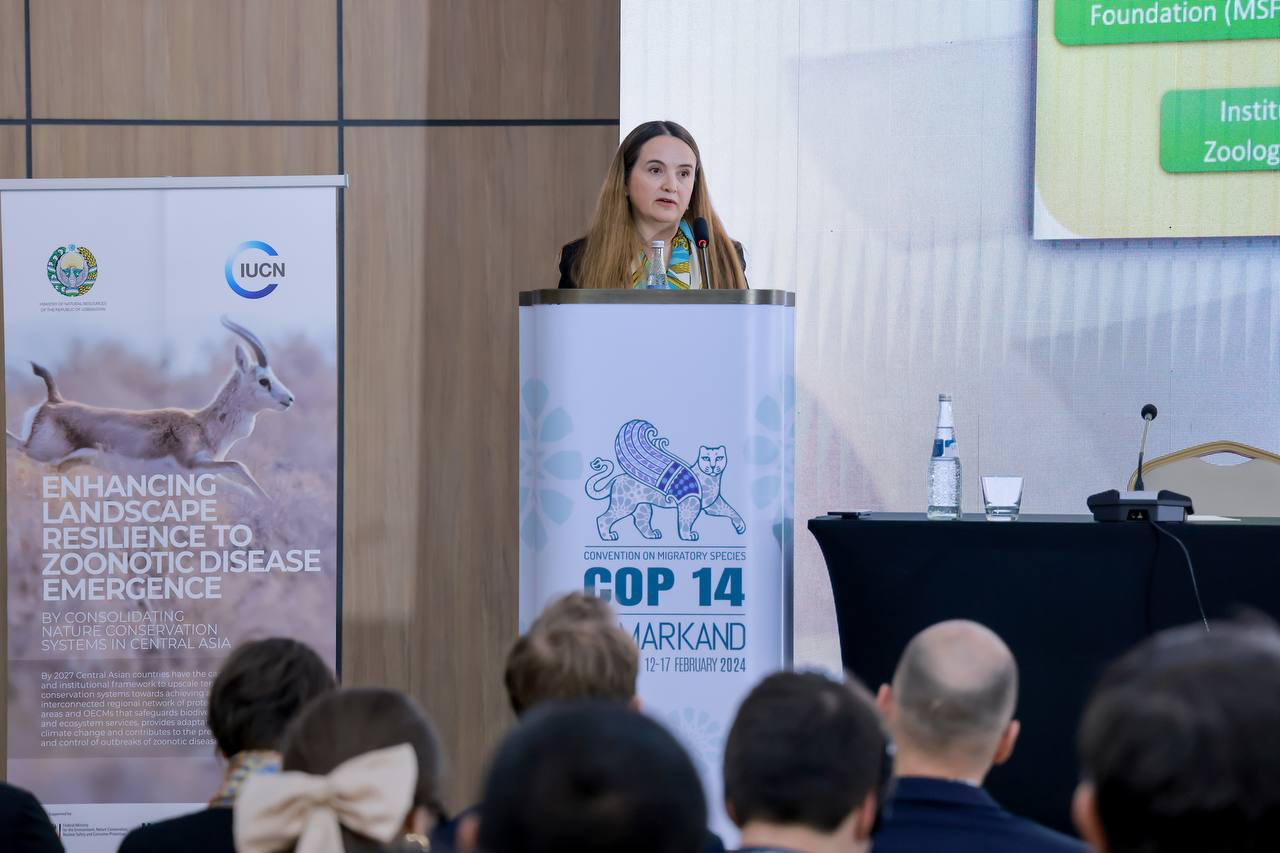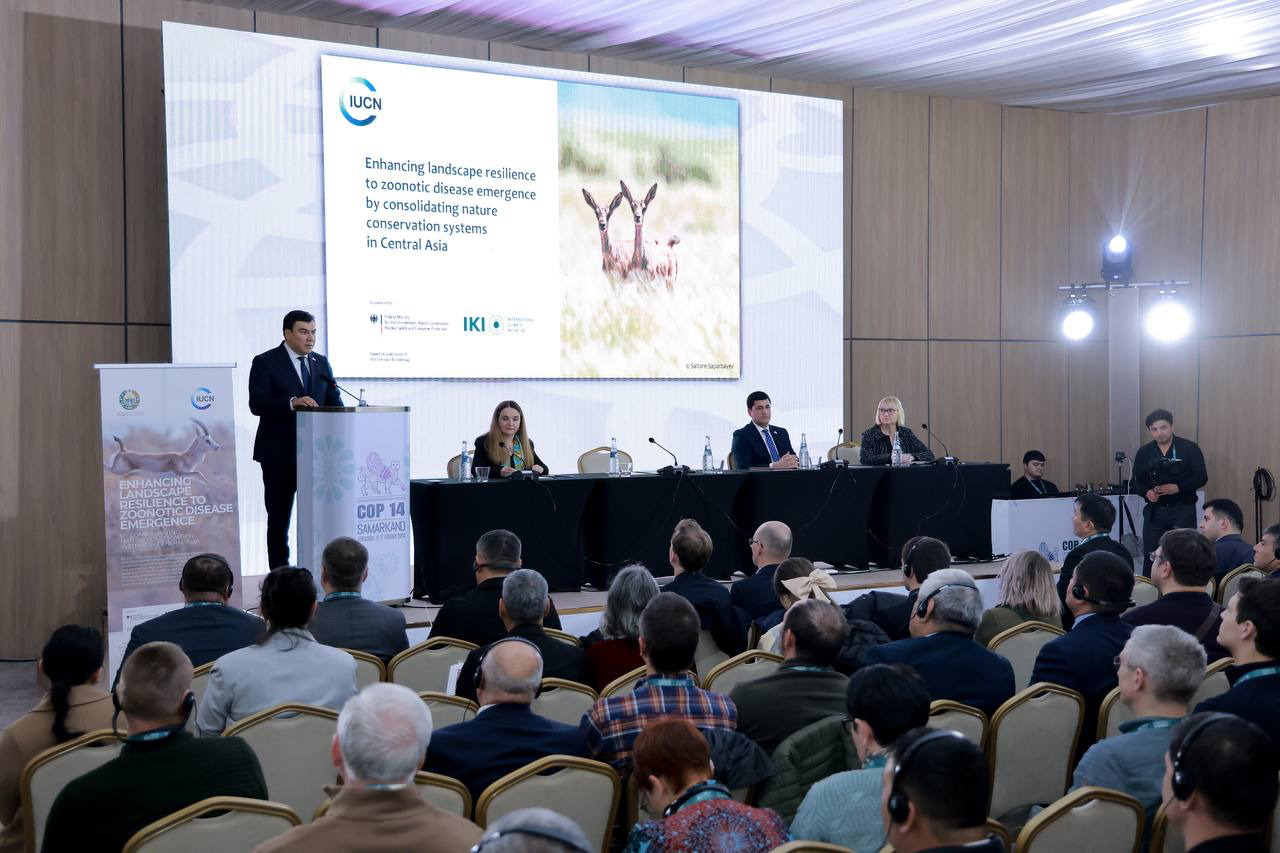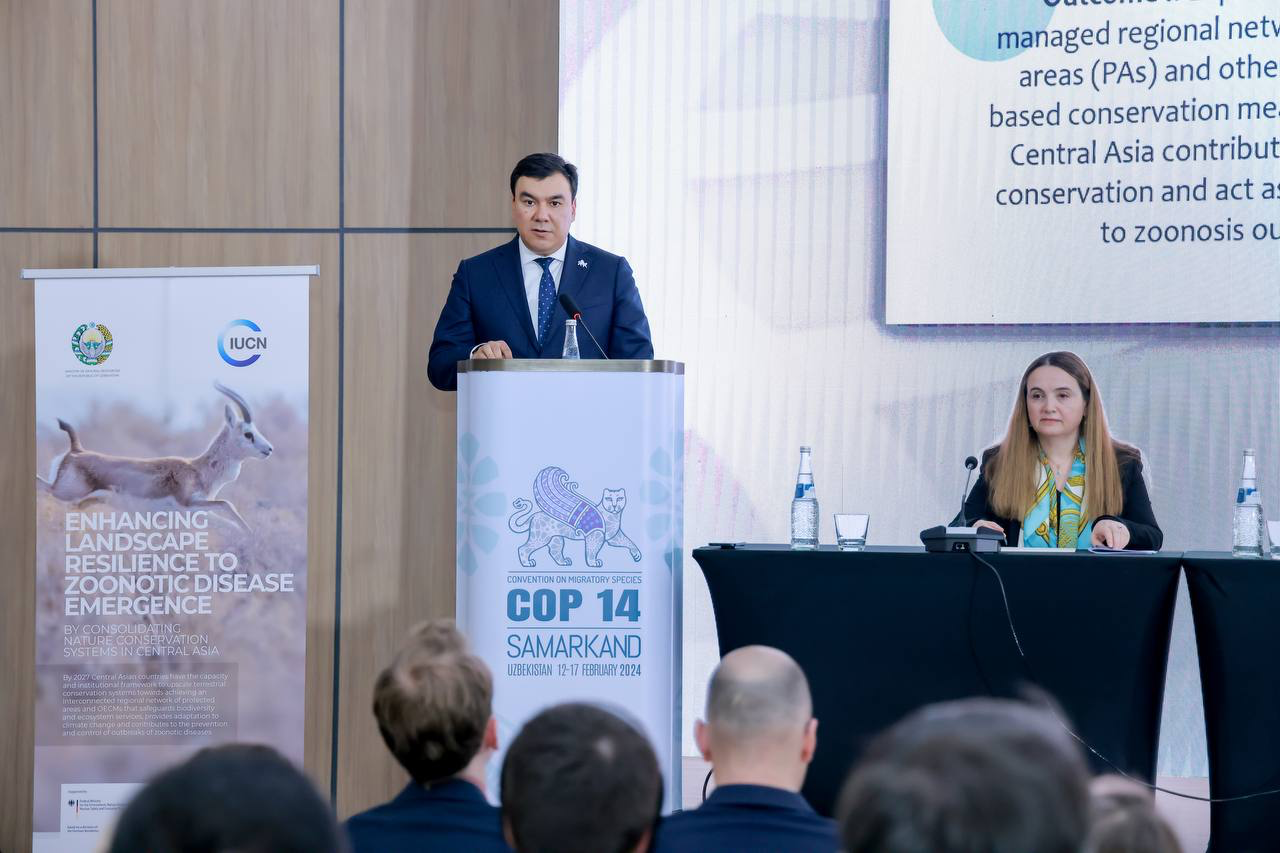Central Asia witnessed a stride in combating zoonotic diseases as the project "One Health in Central Asia" launched with a budget of €11mn on February 13 within the premises of the CMS COP14, the Ministry of Ecology, Environmental Protection, and Climate Change reported. The initiative is a collaborative effort led by the International Union for Conservation of Nature (IUCN) with backing from the International Climate Initiative of Germany (IKI).

Scheduled to span six years, this endeavor aims to address the critical nexus between human, animal, and environmental health, emphasizing the importance of a holistic approach to tackling complex health challenges.
A multifaceted gathering marked the launch event, graced by dignitaries from the public sector, international organizations, diplomatic corps, NGOs, academia, industry experts, and the media. Dr. Grethel Aguilar, Director General of IUCN, highlighted the significance of nature conservation in mitigating the risk of zoonotic disease outbreaks, underlining the potential benefits for Central Asian communities. She expressed commitment towards strengthening regional capacity through the application of IUCN's tools and standards, including the IUCN Green List and best practices in species management, alongside advancements in zoonosis research.

Central Asia faces heightened risks of zoonotic diseases due to biodiversity loss and shifts in human-wildlife interactions. In response, the initiative will see collaborative efforts between IUCN and national and international partners, involving all five Central Asian countries, to implement preventive measures against the emergence and spread of such diseases. Actions will focus on establishing a robust regional network of protected areas, enhancing wildlife management strategies, and strengthening conservation measures to mitigate disease risks effectively.

Aziz Abdukhakimov, Uzbekistan's Minister of Ecology, Environmental Protection, and Climate Change, stressed the urgency of regional cooperation in managing protected natural areas to safeguard biodiversity and environmental balance. He reiterated Uzbekistan's commitment to the initiative, recognizing its potential to bolster nature conservation efforts across Central Asia.
“Over the past few years, we have observed how the spread of zoonotic diseases like COVID-19 can have a global impact. This has resulted in entire countries being demobilized, transportation connections being disrupted, an increase in food security issues, and massive socio-economic consequences. We are committed to expanding regional cooperation for sustainable management of protected natural areas, preserving unique biological diversity, and contributing to the environmental balance in the Central Asian region, which will receive a significant boost through this project on One Health in nature conservation,” Minister Abdukhakimov noted.

Amy Fraenkel, Executive Secretary of the Convention on the Conservation of Migratory Species of Wild Animals (CMS), emphasized the interdependence of wildlife, livestock, human health, and ecosystems in Central Asia. She underscored the importance of the "One Health" approach in addressing habitat fragmentation, biodiversity loss, and associated health risks stemming from the exploitation of wildlife and habitat destruction.
“Habitat fragmentation is the main cause of biodiversity loss, and there are many human health risks associated with the exploitation of wild animals and the destruction of their habitat. The "One Health" approach is of great importance for Central Asia because the health of wildlife, livestock, people, and their ecosystems are interdependent", shared Amy Fraenkel,”

Looking ahead, the "One Health in Central Asia" initiative is poised to spearhead preventive measures against zoonotic diseases through enhanced regional cooperation, robust conservation strategies, and the integration of cutting-edge research and technology. With collective efforts and sustained commitment, Central Asia aims to fortify its resilience against the threats posed by zoonotic diseases, ensuring the well-being of its people, wildlife, and ecosystems for generations to come.
Follow Daryo's official Instagram and Twitter pages to keep current on world news.
Comments (0)